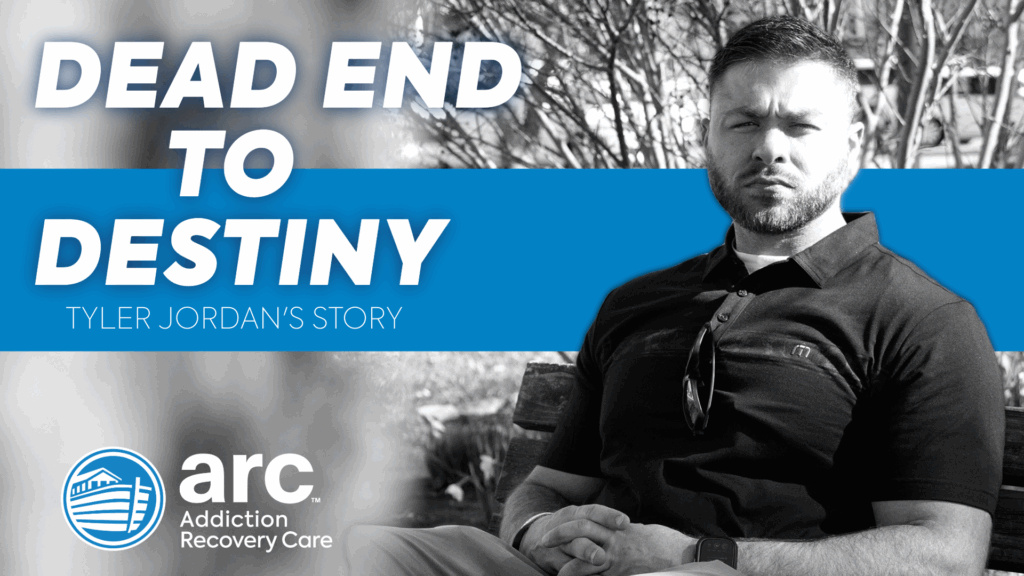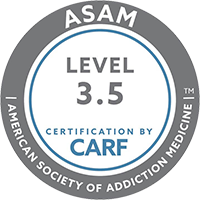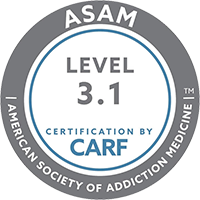
At the end of a lonely road in Magoffin County, Kentucky, Tyler Jordan sat in silence, hidden away from the world. For years, he stayed there — unseen, unheard, and slowly unraveling under the weight of addiction.
“I didn’t speak to anyone,” Tyler remembers. “I would sit and pity myself, wondering why no one wanted to be around me. But, of course, no one wanted to be around me. I was always high. I was always trying to steal something.”
Tyler felt like he had no one and had accepted the idea that this was how his life would end.
But his story was only just beginning!
The Spiral Into Addiction
Tyler was raised with strong values, love and a foundation to set him up for success. His father worked as a bailiff at a local detention center, and his uncle was the county sheriff. But like many, the influences around him slowly pulled him into something darker.
“I was around some older folks,” said Tyler. “A lot of bonfires, a lot of bluegrass music, a lot of drinking, and a lot of marijuana.”
On the night of his 18th birthday, he landed in jail for the first time.
“It was a small charge—receiving stolen property, but that’s exactly how I started off my adult life,” said Tyler.
Not wanting to go to college, Tyler struggled to find direction. He ended up at a night-watching job at a strip mine where he would watch equipment. It was here he was introduced to OxyContin.
“When that feeling hit me, I’ll never forget it. I said, ‘This is it.’ And things just spiraled out of control,” he said.
The next few years were marked by chaos. It was a revolving door of courtrooms and jail time.
“I would look in the mirror at myself and realize I couldn’t go outside and be around people because I looked so bad,” Tyler said. “I dropped to 139 pounds.”
Tyler began to struggle mentally to the point where he was paranoid and seeing things that weren’t there. He became physically violent, becoming someone he didn’t recognize.
“I lived at the head of this road for almost two years straight without seeing anyone, and I think that messed me up,” Tyler reflected. “I became really negative about life, just towards God. I didn’t I felt like I had no one when I had everyone. I thought for sure this was the way I was going to go out, and I had accepted it.”
The Turning Point
Living alone, in a deep meth-induced psychosis, Tyler’s aunt found him in his darkness and pulled him out, taking him to a detox facility in Paris, Kentucky, and eventually to Addiction Recovery Care, where he was diagnosed with acute symptoms of schizophrenia.
Things went well for seven months. He became an intern and made progress. But he decided to leave and soon found himself using again.
“It was like I took a shot of regret. I immediately knew I couldn’t live my life this way.”
He picked up the phone, called ARC, and immediately came back.
This time, something was different.
Redemption and Purpose
Tyler returned to ARC with a new mindset. He didn’t just complete treatment. He committed to it. He dug into the hard work of healing and rediscovered something he had long forgotten.
“I made the decision that I’m going to make this my life,” Tyler said. “I’ always loved helping people. I cared for people, you know, I hated seeing anybody suffer. I didn’t see anybody hurt. I wanted to help them.”
Tyler joined the ARC team as a staff member in 2019 and was quickly promoted. Today, he is the Center Administrator at Crown Recovery Center. He shows up every day for the next man in line, determined to help others believe in something they may not see in themselves yet.
“I will be here anytime that I’m needed. Once I step foot onto the campus, there’s nothing else that matters besides all these male clients we have,” said Tyler. “We’re all here trying to accomplish the same mission, and that is we’re trying to stay sober. We’re trying to get the tools necessary to keep ourselves sober.”
He’s built a life he never thought possible. He’s earned two college degrees and owns his own home, car, and motorcycle.
“When I was in addiction, I used to always think, ‘What was it like to be normal?’ What was it like to have that white picket fence?” said Tyler. “Recovery has given me that. I wouldn’t change it for the world because it ultimately molded me into the person I am today.”





